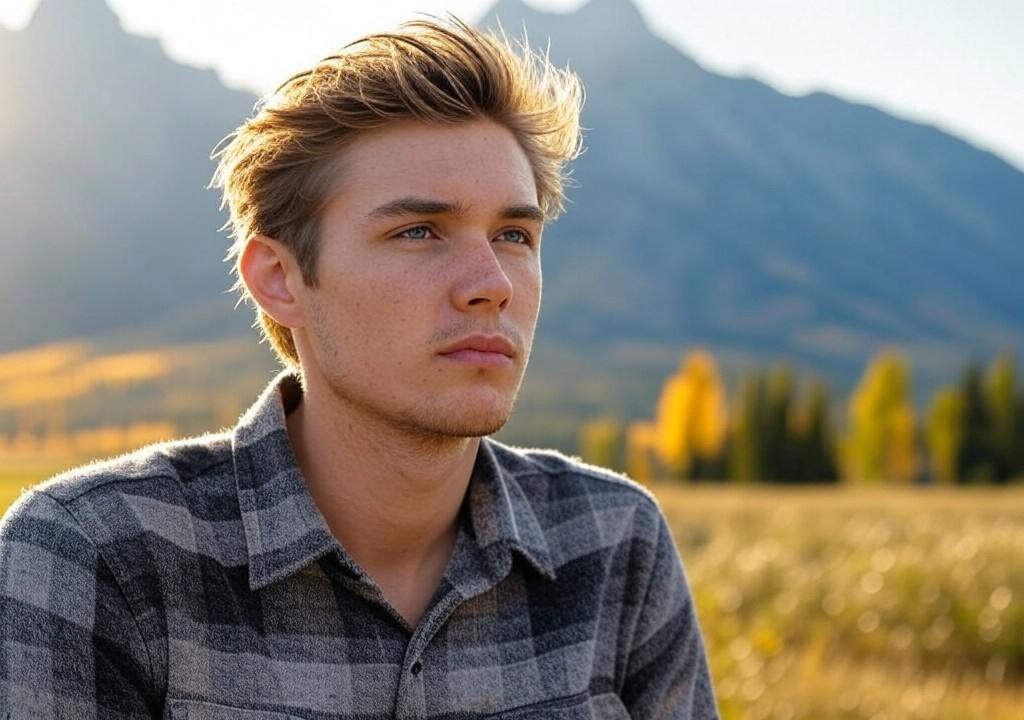I don’t remember exactly what I was doing when the phone rang, which, frankly, makes no sense because for most of my twenties, my free time was a predictable cycle of cleaning out barns, unsuccessfully patching fences, or scrubbing trail dirt off my boots. What I do remember is the sound the kitchen phone made—a shrill trill that somehow felt louder on freezing Wyoming winter days when everything else outside stood still.
By then, my post-college life was well set. I was working as a park ranger in Grand Teton National Park, pouring every ounce of energy into preserving landscapes and educating tourists about not mistaking a moose for a boulder (shocking how often it happened). I imagined my life going in one very straight, very Crunchy Patagonia-Ad-Turned-Reality direction: a future full of campfire coffee and wearing the same pair of flannel-lined Carhartts into my sixties.
But this phone call—this was like a great horned owl suddenly winging up from the quiet woods: startling, fascinating, impossible to ignore.
The Unexpected Offer
“Jackson. Hey. It's Wendy,” the voice said.
Now, let me paint you a picture of Wendy: fiery English professor who ran the writing workshop I’d gate-crashed in college on a dare. She had the kind of presence that felt equal parts intimidating and magnetic, like she might tell you your work was trash but also hand you a life-changing novel as a consolation prize. She wasn’t exactly someone I expected to call me years later.
“You still writing anything?” Wendy asked.
Was I? Kind of. Journals full of moody thoughts and field notes didn’t seem worth mentioning. So, I hedged: “Here and there.” Classic non-answer.
“Well, here’s the deal,” she said, and my gut already knew I was about to get roped into something. She explained that an editor she knew at Wild Canyons Magazine was looking for an essay on the everyday mystique of Wyoming life. “You grew up ranching out there, right? Guided trail rides? I’d say you count as an expert.”
The awkward pause on my end was not deliberate. I was too busy picturing my old high school creative writing assignments. If teenage me saw this moment, he’d snort Mountain Dew up his nose instead of believing it.
“Anyway,” Wendy added before I could form an excuse, “I’ll put your name down.”
And just like that, the glacier of my carefully constructed ranger life cracked wide open.
Choosing Adventure Over Comfort
At first, I tried to talk myself out of it. “You don’t have time for this; you’re not a professional writer; you grew up in a place where half the library was hunting magazines,” my internal monologue raged. I mean, come on—writers were people who lived in Brooklyn lofts, not guys who could identify scat piles from fifty feet away.
But something niggled in the back of my brain. In nature, they call it edge habitat, those transitions between two ecosystems—where the forest crescendos into meadow, river into canyon. It’s where life thrives because it’s unpredictable and rich with contrast. “Maybe I’m in my own edge habitat,” I thought.
And—what the hell—I figured I had nothing to lose but sleep. I spent two sleepless nights writing a draft, editing it, and then editing it some more until I’d spent so long staring at the same page that even the word “Wyoming” started to lose meaning.
The piece went out. Against all odds, it got published, and strangers started reading words I thought up while pretending to be productive on ranger patrol. Adrenaline kicked in. People loved it, they shared it, and then more editors asked for pieces. So, what started as a single essay turned into a side hustle, which turned into a career.
What This Taught Me About Relationships
Here’s the part where I bring this moment back to dating and relationships—because let’s face it, our love lives almost always circle back to risk-taking and unpredictability. That phone call taught me something big: every meaningful connection (romantic or otherwise) is basically a leap into discomfort, uncertainty, and potential greatness.
Consider how first dates work. Flirting and meeting someone new happens in the emotional equivalent of edge habitat. It’s not safe and familiar; it’s wide-open territory where literally anything can happen, and while that’s nerve-wracking, it’s also where the most magic is possible.
Applying this to relationships is kind of like this:
1. When Opportunities Call, Pick Up the Phone – Don’t ghost possibilities because you’re afraid of putting yourself out there. Whether it’s opening up to someone new or giving long-distance love another shot, the “what if” is often worth exploring.
2. Do the Vulnerable Thing – Sending out that essay was terrifying, because rejection felt inevitable. Just like saying “I like you” first or reaching for someone’s hand always feels like a gamble. But life teaches you that being vulnerable is where the best stuff grows.
3. Trust Your Unique Expertise – When Wendy called, she didn’t ask me to reinvent myself. She told me to lean into who I already was—working with tourists, mucking stalls, growing up in a boots-on-the-ground Wyoming world. This same principle applies in relationships: don’t pretend you’re something you’re not to “sell” yourself better. Who you are, as-is, is your strongest story to share.
Takeaway: Life (and Love) is Inherently Messy
In the years since Wendy’s phone call, my career has unfolded in ways I could never have planned. I still live in Wyoming, but now I write more than I patrol. Writing has become the way I connect with people, and oddly enough, that same principle applies when it comes to love and relationships.
The point is this: Sometimes opportunity doesn’t show up like a tidy PowerPoint presentation or a perfect partner who already checks every box. It shows up like a sudden phone call in the middle of chores, asking you to drop your hay bale of hang-ups and just go for it. Love and life both thrive in those moments where you lean toward instead of away from possibility.
So, the next time life—or someone particularly intriguing—picks up the phone, don’t think too hard. Just pick it up.




















